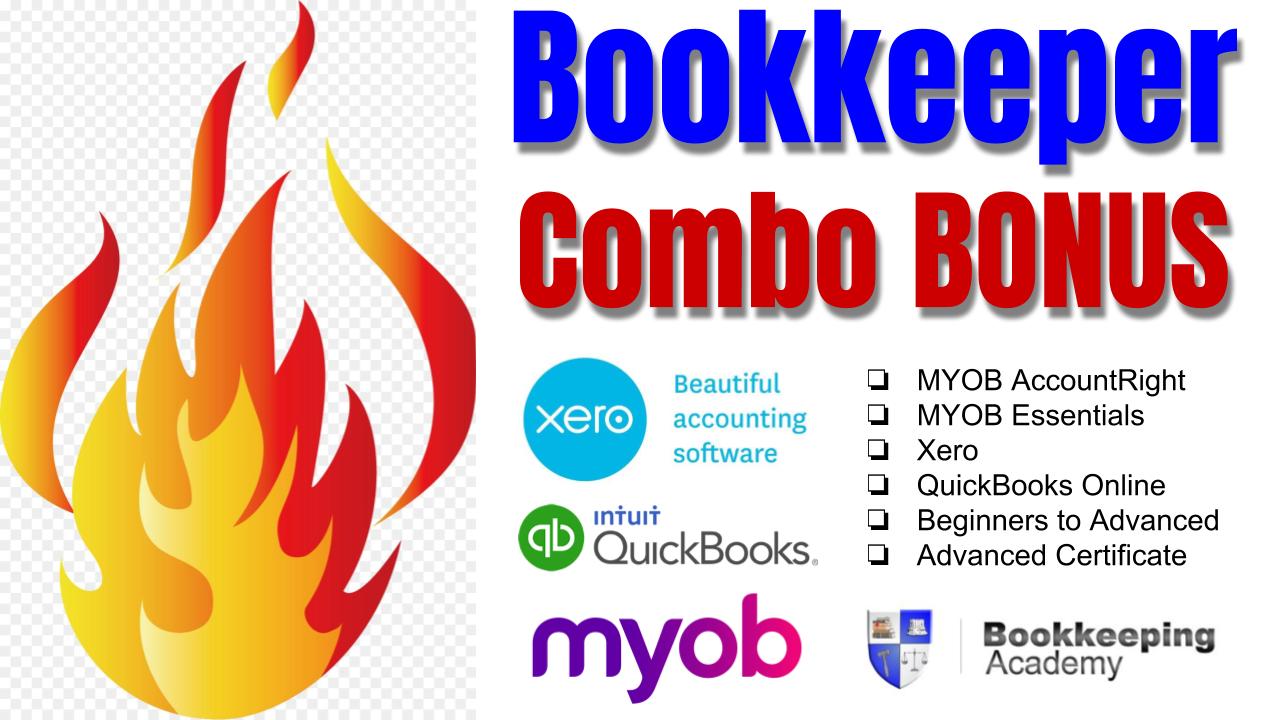
The Internet has spawned several cloud accounting software program all over the world including:
Continue reading SPECIAL OFFER: MYOB, Xero & QuickBooks Online Courses ALL for One Low Price

The Internet has spawned several cloud accounting software program all over the world including:
Continue reading SPECIAL OFFER: MYOB, Xero & QuickBooks Online Courses ALL for One Low Price

THERE ARE UMPTEEN REASONS why starting a bookkeeping business is a great low-cost venture for people looking to take a step back from the corporate world, or even for those looking to do quite the opposite by working from home so they have the flexibility they need as parents to young children.
If you’re a subscriber of this blog, then you’ve read posts about National Bookkeeping, the company EzyLearn has partnered with to deliver training courses to people who become National Bookkeeping licensees.
However, I’m going to talk about it again because there are still too many talented people out there who don’t think they have what it takes to go into business for themselves. And I’m here to tell you, you do, and we’ll help you!
Continue reading When a Bookkeeper Isn’t Just a Bookkeeper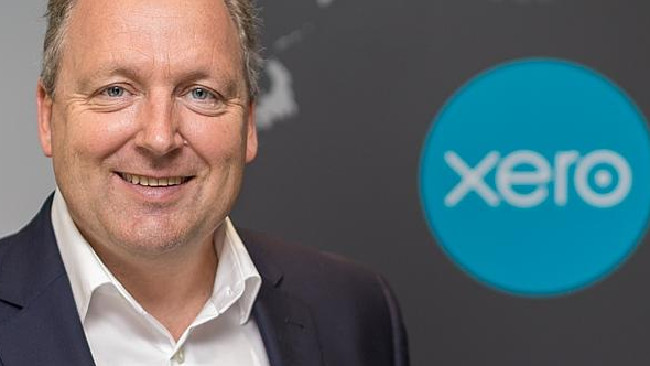
WHEN XERO FIRST ENTERED the accounting space, it gave MYOB a real run for its money — something Xero continues to do to this very day.
When Xero first entered the market, it was with a bang. You see, even though Xero and MYOB share many of the same features, Xero was cheaper and easier to use than MYOB, but perhaps even more so, it was also cloud-based. Being cloud-based meant you didn’t have to buy and install pricey software that would be out-of-date within 12 months. A huge advantage.
Since then, however, a number of cloud-based accounting applications have entered the market — QuickBooks Online (now distributed by their US-based parent company Intuit), Reckon One, Saasu, Zoho, and so on.
As business owners have more choice than ever before, it’s got a lot of people wondering about whether the two market leaders (Xero and MYOB) are really all they’re cracked up to be, Xero in particular.
Even though Xero was hailed as a breath of fresh air when it first entered the market, it is still a little more complicated to use when compared with other cloud accounting apps, like QuickBooks and Reckon One. For instance, the purchase orders feature is still hidden behind bills, when it could easily be access via a dropdown menu. But it’s not a major quibble.
Although Xero allows you to assign customer numbers for your suppliers or customers in the contact profile, it doesn’t have the functionality to record customer numbers assigned by supplier or customer.
If you’re trying to get in touch with Telstra, for example, with whom you’ll have been assigned a customer or account number, you’ll have to dig around for the paper bill to find that customer or account number.
This feature is available in QuickBooks, and it’s also available in MYOB, but as is often the case with MYOB, it requires more steps to do what you can in Xero in just a few clicks. Rather than keep paper bills on hand, Xero allows you to attach them to you transactions, so you never have to go hunting around for a bill again (very useful given the contact profile issue mentioned above).
In MYOB, you must upload your bills to your in-tray, and then link them to your transactions. This is annoying, because it requires you to leave the transaction window and open the in-tray one.
Remember that when you select a cloud accounting package for your business, do not choose solely based on price. Make a list of the needs of your business and the functions you’ll require, and then select the accounting package that suits your needs the most. Ask your bookkeeper and other business friends for their recommendations as well.


IT’S NOT ALWAYS EASY to find a bookkeeper who suits your business’s needs. This can be further complicated by the fact that a lot of business owners don’t know too much about bookkeeping.
Now that virtual bookkeepers have become more common, lots of business owners have started selecting bookkeepers based on their affiliation with an accounting application. Such bookkeepers are often called a Certified Advisor (Xero), Pro Advisor (QuickBooks) or Certified Consultant (MYOB). But are they really the best bookkeeper for your business?
In a nutshell, a certified advisor, consultant or pro advisor is just an individual who has been endorsed by a software company because they’ve demonstrated a high level of knowledge and skill with a particular accounting product.
Hiring a bookkeeper who’s been endorsed by MYOB, say, means you shouldn’t have to worry about whether your bookkeeper has set up your accounting package correctly, or whether they’re using the correct codes. What it doesn’t guarantee, however, is that each consultant or advisor is a highly experienced BAS agent, as the certification relates to their software knowledge only.
Certified Advisors and Pro Advisors go through their certificate, which is often free, because it elevates their own profile. It can also demonstrate that they are committed to that software program more than others. The Xero Certification training (at the time of writing) has a strong focus on understanding how to use the Xero Agent portal to bring clients onto the platform – and not so much about learning bookkeeping or to become a BAS Agent.
If you don’t have an accountant or BAS Agent then you should make that your starting point as everyone needs someone who can perform tasks that relate to tax and GST who acts on your behalf. If you have that setup already you can hire someone who has good bookkeeping skills using MYOB or Xero but is cheaper because they are not registered or licensed. This junior bookkeeper can perform your office admin, accounts and even customer service while your Registered BAS Agent or Tax Accountant can sign off on your financial figures.
Sure, a bookkeeper who’s experienced in your accounting package is important. It’ll help keep your bookkeeping bill down because they’re able to perform certain functions quickly, while your accountant shouldn’t need to fix any errors, either. But that’s only providing that they’re as knowledgeable in Australian tax as they are MYOB or Xero or QuickBooks.
Unfortunately, however, the two aren’t mutually exclusive. So instead of focussing on a bookkeeper’s software experience, it’s more beneficial to ensure they’re qualified BAS and tax agents, with either a Certificate IV in Bookkeeping or higher.
If you don’t get a bad reference from their current and former clients, then there’s a pretty good chance they’re proficient in the major accounting packages, and if they’re not, most bookkeepers will tell you upfront.
There are lots of reasons a bookkeeper would choose to become certified with a software company, the biggest being that they get their accounting software for free and receive a commission for each new client they sign up to use the accounting package they’ve been certified with.
However, when you hire an independent bookkeeper who’s well-versed in a few different accounting packages, you’re more likely to get better advice about which accounting package is best suited to you and your business’s needs, rather than the accounting package that will generate income for your bookkeeper.
Are you looking to brush up your skills in cloud-accounting packages like XERO, MYOB or Quickbooks? We provide a range of online training courses in all of these packages at ONE LOW COST for ALL SKILLS LEVELS. Find out more.
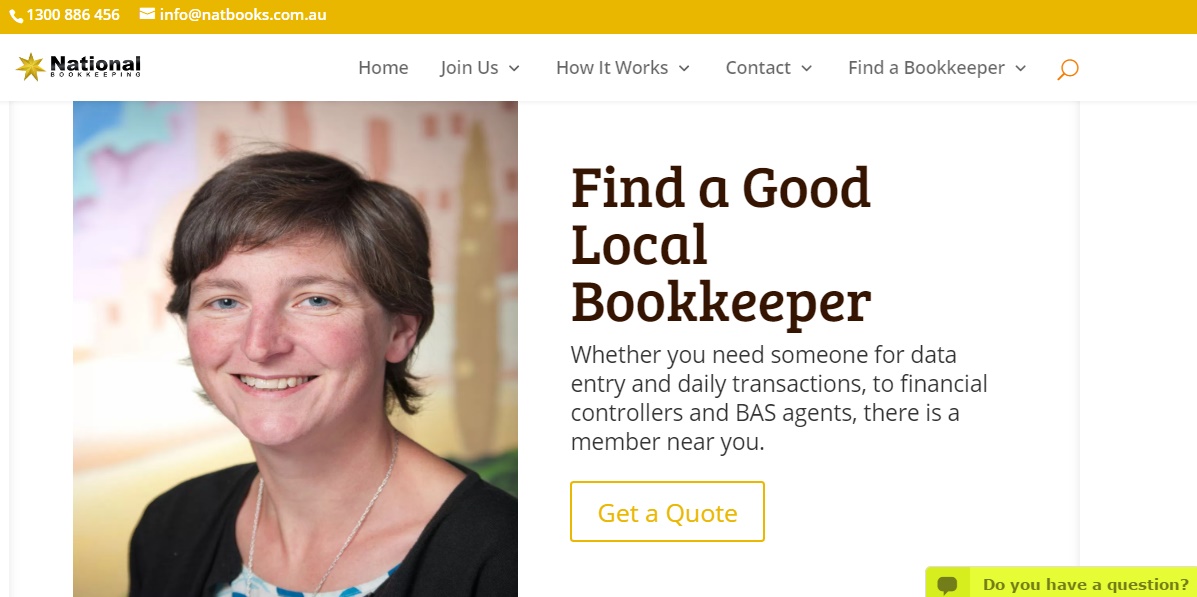
We feature our own online directory of local bookkeepers looking to add to their customers. Visit National Bookkeeping to find a suitable and experienced person available to work in your area, or able to work anywhere in the cloud. Alternatively, if you are a bookkeeper looking to expand your client list or find contract work, you can register and become part of our network for free.

ALL BUSINESSES CAN TAP into useful cash flow forecasting apps, whether they use Xero, Quickbooks or MYOB. There are also a host of basic expense and budgeting apps that sole traders and contractors can use for similar purposes.
The difference between the two boils down to price and functions: The more functions you need, the higher the price tag. Businesses that require high-level reporting and forecasting tools, such as a “scenarios” function that lets you determine the impact different business decisions would have on your cash flow, before you actually make them, would need to stump up, at a minimum, between $50 and $80 a month for this functionality.
Free expense and budgeting apps would suit most contractors and sole traders who don’t require complex forecasting and reporting tools, but who do need to see when money is coming in and when it’s going out, and whether there are deficiencies.

Looking into the best expense and budgeting apps for small business, we came across the Australian Tax Office’s app, simply called ATO. It works on Windows phones, as well as iOs and Android devices, and it’s updated regularly by the ATO, so you know this isn’t just a passing fling.
Our post on cash flow reporting and forecasting for contractors and sole traders went through the app’s functions, including what we thought were some standout features:
If these features sound familiar, that’s because they’re all the features you’ll find in a basic cloud accounting program, with the notable exception of invoicing. Electronic invoicing is not something the ATO is particularly concerned with because it’s not a requirement. Invoicing, of course, is a requirement, but how you do it — in person, by snail mail, email, etc — isn’t.
If the ATO app introduced a simple way to invoice customers, we’d say it was definitely muscling in on QuickBooks and Xero’s territory, since both programs appeal to the small business owner, QuickBooks in particular.
In absence of that, the ATO app is a great tool for contractors and small business owners to use to keep track of their expenses and deductions, and especially to calculate their tax rates (so as to properly keep money aside for tax, rather than being hit with a tax bill you have to pay off). For contractors with a very simply business model, it’s even useful for lodging your tax return.
But otherwise, cloud accounting applications are still the best and easiest way for businesses to run an efficient, compliant business. At the end of the day, for many small business owners, they’re not drawn to Xero or QuickBooks because they want to stay compliant, it’s because they want to be able to easily invoice customers and track their income — compliance is just an added bonus.
Our online Xero training courses meet all skills levels for ONE LOW COST. We will show you how to record deductions, invoice customers, run financial reports, and lodge activity statements and tax returns. Visit our website for more information about our range of online accounting, media and general business courses.

Need to brush up on Excel? You receive access to ALL OF OUR COURSES, including ALL SKILLS LEVELS for ONE LOW PRICE. You can even start your Excel journey with our FREE Beginners’ Excel Course Workbook. Read more about our beginners’, intermediate and advanced Excel training courses on our website, or enrol to start learning by 5pm tomorrow! And all of our Excel courses can be counted towards CPD points.

AS WE’VE WRITTEN PREVIOUSLY, cash flow is one of the most accurate instruments for predicting your business’s financial health. It’s more accurate than profit and loss statements, which don’t take into account any cash outlays, and so don’t show a true picture of your business’s finances.
We have also checked out some of the latest cash flow forecasting apps that integrate with Xero and other accounting packages. These can be excellent tools for businesses that employ staff or are expanding rapidly, but there are still many business owners that don’t fit into that category, and although keeping an eye on their cash flow and forecasting trends remains critical to their financial health, they can’t justify the high price tag of an app like Spotlight or Float.
What’s a cash flow app, if not a program that tracks your expenses and income and then tells you how much money you have left in the bank? That’s what FUTRLI and Spotlight, the apps we reviewed recently would do, and then also let you do other things, like create scenarios to determine the particular outcome of a business decision.
But there are other expense apps that sole traders and contractors can use for cash flow forecasting:
Pocketbook, the Australian personal finances app recently acquired by ASX-listed ZipMoney, is free to use, although a recent deal with 1300HomeLoans means it may analyse your spending data to make commercial suggestions around your personal finances. (For the record, I have been testing it for months and hasn’t been subject to any such suggestions.)
Pocketbook lets you connect your bank account to the app so it can import your income and transaction data. Once you get some initial housekeeping — categorising your expenses and income — out of the way, you can then set up a safety spend limit based on Pocketbook’s analysis of your spending vs. income.
Pocketbook also learns from your transaction history, meaning it can predict upcoming income and bills. It’s very nifty for contractors or freelancers who have more than one income source that doesn’t always run through your accounting software — if you’re working on your TFN and ABN, for instance.
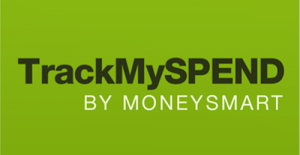 This free app, by ASIC MoneySmart, lets you connect your bank account to the app, categorise your expenses, nominate a spending limit, and create expense reminders that can be sent to as text messages ahead of their due date.
This free app, by ASIC MoneySmart, lets you connect your bank account to the app, categorise your expenses, nominate a spending limit, and create expense reminders that can be sent to as text messages ahead of their due date.
Like Pocketbook (but without the commercial overtones), TrackMySpend will also learn from previous trends in your income and expense data to predict future income and expenses. Best of all, TrackMySpend can be exported as an Excel file or connected to your accounting software. The iOS app is a bit out of date, though, so it won’t work on more recent Apple devices.
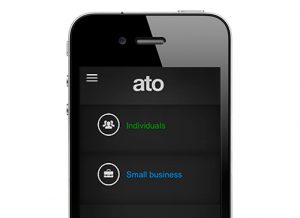 If you didn’t know it already, the Australian Tax Office has its own mobile app. It allows you to access the ATO’s online services, lodge and track your tax return (yes, right from your mobile phone), work out key tax dates and access tools and calculators.
If you didn’t know it already, the Australian Tax Office has its own mobile app. It allows you to access the ATO’s online services, lodge and track your tax return (yes, right from your mobile phone), work out key tax dates and access tools and calculators.
Its most handy functions: being able to enter your expenses (including a photo of receipts and bills), track mileage, and record your income. It’s not automated, but it does propagate that info directly into your tax return, so you don’t have to do it later. It also accurately calculates your tax liabilities.
The ATO app’s best function, however, is its “business performance calculator”, which, using the data you input, will give you an indication of your business’s ability to pay its debts, as well as a comparison of its performance based on the ATO’s “small business benchmarks” data. Over time, it’ll also show whether your business has improved or declined since you last used the tool.
Understanding your business’s cash flow is critical to its ongoing financial health, and to your ability to make sound business decisions. Use one of these tools in conjunction with your accounting software to ensure your business is running on all cylinders.
Our Xero training courses, which provide training in EVERY LEVEL for ONE LOW COST, will show you how to run financial reports, including cash flow statements that you can use to create forecasts in Excel. Visit our website for more information about our online training courses.

Are you in business as a bookkeeper, tradesperson, retailer, trainer or real estate agent and want to stand out from the crowd? We can teach you the online marketing techniques to help you do just this! Check out what’s included in our comprehensive Social Media and Digital Marketing online training courses.
nnn


WE RECENTLY PUBLISHED A blog examining the different expense tracking apps you can connect with Xero, MYOB and QuickBooks, but during our research it became clear that most expense apps integrate with Xero or QuickBooks, but not MYOB.
That’s not to say there are no expense apps that integrate with MYOB. There are. Receipt Bank is one, Squirrel Street is another, and there are probably a lot more on the MYOB marketplace (or add-ons page). Probably the best expense tracking application we found is ExpenseManager, and it only integrates with MYOB.
Continue reading Why are there More Expense Tracking Apps for Xero than MYOB?

WE PREVIOUSLY WROTE ABOUT using Expensify and Xero to do the grunt work of your account reconciliations. We’ve also touched on how Expensify works for retail shops, online shops and hospitality businesses.
This time we’re looking at other expense applications that not only integrate with Xero, but other platforms like MYOB and QuickBooks, too. (For the record, every transaction Expensify does with Xero, it also does with QuickBooks; and also for the record, we not only provide online training in Xero [all levels for one low cost] but MYOB and Quickbooks too.)
Here are some other expense tracking app integrations.
Continue reading Top 3 Expense Applications for Xero, QuickBooks and MYOB
IN A PREVIOUS POST we discussed how Expensify, an app which you can link to your Xero accounting software, can help businesses like yours’ keep track of expenses easily, accurately, and securely.
And while it’s a great expense app for professional services businesses or tradespeople, Expensify is also great for retail and online shops or hospitality businesses.
Shops and hospitality businesses require inventory or stock — and lots of it. But it results in an accounting and bookkeeping nightmare at the end of the month when it needs to be entered into Xero and then recorded against sales. Of course, we suggest business’ try to reconcile their transactions more regularly than just at the end of every month.
Take a photo of bills and invoices from suppliers and upload them to Expensify, which will input all of the data and then send it through to Xero.
Online and offline retailers don’t have to worry about this too much unless they also produce their own products, but for cafes and restaurants that host functions or cater for events, separating the expenses directly related to those functions and events is an important way to track their profitability.
By turning on the automatic approvals feature and setting expense rules, you can cut your bookkeeping time by having recurring or trivial expenses automatically approved and sent to Xero, so you can spend more time on the complicated ones that require closer inspection.
By keeping an eagle eye on your expenses using Xero and Expensify you’ll be able to see precisely where your business is most profitable and where it’s not so you can modify it accordingly.
Our Xero training courses will show you have to track expenses in Xero and how to connect third party apps to your Xero account. We offer ALL SKILLS LEVELS for ONE LOW PRICE. Find out more.

Are you in business as a bookkeeper, tradesperson, retailer, trainer or real estate agent and want to stand out from the crowd? We can teach you the online marketing techniques to help you do just this! Check out what’s included in our comprehensive Social Media and Digital Marketing online training courses.

WE’VE TALKED IN THE past about what a life saver daily reconciliations can be, and why some businesses could benefit from reconciling their account daily, twice weekly, or at least, on a more regular basis than once a month.
The expenses your business incurs form deductions that reduce your taxable income, so making sure you’re recording them accurately — and then storing them securely too — is an important part of your business remaining compliant.
An online software program like Xero will enable you to enter your expenses and transactions; and you can also use an app to automate the process for you, like Expensify. Bank Feeds also make this task easier and enable you to work remotely from home. Continue reading Financial Reporting with Expensify and Xero

WE’RE ALWAYS UPDATING OUR Excel training courses, and as we do so, we’re reminded of just how useful Excel continues to be for small business owners — particularly the latest versions of Excel which include a boatload of new features that make it easy to create and manage relational databases, which you can also use as the data source for a pivot table.
But supposing, for whatever reason, you don’t want to use an Excel database as your pivot table’s data source? Well, there are some other options to create a pivot table without manually entering the information into Excel first. Here are a few more data sources that you can use to create a pivot table in Excel.
The office data connection (ODC) file extension was created by Microsoft and contains properties to connect to and retrieve data from an external data source. It contains a connection string, data queries, authentication information and other settings. Microsoft recommends that you retrieve external data for your pivot tables and reports using ODC files.
If, for instance, you’re using another relational database program, like Microsoft Access or Filemaker Pro, you can also import data directly from these programs into your pivot table, rather than manually entering the data into an Excel worksheet. In the case of connecting data from an MS Access database, you can do this quite simply by selecting Access from the ‘data source’ dialog box. For all other external databases, you would select the ‘from other sources’ dialog box and follow the steps in the data connection wizard.
Each time that you create a new pivot table, Excel stores a copy of the data for the report in memory, and saves this storage area as part of the workbook file. To use one pivot table as the source for another, both must be in the same workbook. If the source pivot table is in a different workbook, copy the source to the workbook location where you want the new one to appear. Keep in mind that when you refresh the data in the new pivot table, Excel also updates the data in the source pivot table, and vice versa. When you group or un-group items, or create calculated fields or calculated items in one, both are affected.
The easiest and most efficient way to create a pivot table is to create a database in Excel first. Here, you can update and manage as much information about your business — including customer data and financial data — and then use that as a data source for a pivot table.
Creating databases and pivot tables are part of our advanced Microsoft Excel training course, but you can start your Excel journey with our FREE beginners’ Excel course. Read more about our beginners, intermediate and advanced Excel training courses on our website, or enrol to start learning by 5pm tomorrow!

Our Xero online training courses include EVERYTHING for ONE LOW PRICE. Furthermore, if you select our Lifetime Membership option, you’ll have LIFETIME access to our ongoing course updates. All EzyLearn courses are accredited by the Institute of Certified Bookkeepers (ICB) and can be counted towards Continuing Professional Development (CPD) points. Find out more about our Xero online training courses.


IT’S PERHAPS EASIER TO do your own bookkeeping these days than it used to be; particularly if you’re using a cloud accounting program like MYOB, Xero or QuickBooks, which are among the easiest, yet robust, accounting applications currently on the market.
But even so, there are many aspects of Australian tax that, while accounting software makes it possible to carry them out yourself (like business activity statements, for example), it’s not a good idea unless you really know what you’re doing. Here are the three GST mistakes nearly every business owner makes in their bookkeeping.
Continue reading Are You Making these GST Mistakes in Your Bookkeeping?
WE’VE RECENTLY BEEN UPDATING the content for our Excel training courses and were reminded of just how useful Excel is for small businesses. In Excel, you can easily create and manage client databases and then export part or all of that data into a Word document, your accounting software, an email marketing service, or use it in other Excel documents, such as a pivot table.
A pivot table is Excel’s signature, and most powerful, feature — Microsoft trademarked the words ‘pivot’ and ‘table’ in their compound form PivotTable back in the 1990s. So if you intend to use Excel in any meaningful way for your business, knowing how to create and work with pivot tables is an essential skill, one which we cover in our newly-updated, advanced Excel online training courses.
A pivot table is a way to quickly summarise and analyse large amounts of data, and the pivot tables you can create in Excel are especially designed for:
There are a few ways that you can create a pivot table, though the most common way is to use an existing Excel worksheet — a database, for example — as a data source. Here are a few ways to create a pivot table in Excel:
The most efficient way to create a pivot table is to create a database in Excel first. Here, you can update and manage as much information about your business — including customer data and financial data — and then use that as a data source for a pivot table.
Creating databases and pivot tables are part of our advanced Microsoft Excel training course, but you can start your Excel journey with our FREE Beginners’ Excel Course. Read more about our Beginners’, Intermediate and Advanced Excel training courses on our website, or enrol to start learning by 5pm tomorrow! We cover ALL levels for ONE LOW COST.

At EzyLearn we offer online training courses to help you up-skill and find employment. Choose from our range of cloud-based online accounting software courses, to business start up and management courses, to marketing and sales courses, or update and further your skills in a range of Microsoft Office programs (Excel, PowerPoint, Word) or social media and WordPress web design).

IF YOU’RE AN INDEPENDENT contractor, or you’re a full-time employee about to start up a side business, then you need to be able to keep a good track of all your income streams. There are a couple of reasons for this and both of them relate to tax. Continue reading What to Do When You Have More than One Income Stream

HAVE YOU RECENTLY STARTED running your own business? Whether you have, or whether you’re about to, reconciling your bank accounts regularly is probably one of the best ways to monitor your expenditure in relation to your income.
If you’re operating your start up venture as a sole trader, the best way to keep tabs of where your expenditure sits is to use a cloud accounting application like Xero, MYOB or QuickBooks — in addition to a Microsoft Excel spending or expense sheet.
Your accounting software will help you to keep track of your income and business expenses and other important things that will affect your start up — such as how long it takes to get paid — while an Excel spending or expense sheet will help you to monitor all of your spending, business or otherwise.
This starts when you get your bank statement, but you can speed the process up, by entering recurring expenses into your Excel spreadsheet as they occur.
Remember that not all of your expenses are 100 percent business ones so you’ll need to estimate what percentage of your internet usage, for instance, has been for business purposes.
In your Excel spending sheet, you’ll enter the expense in total, but in your accounting software, you’ll only enter the percentage of the expense that relates to your business.
If your business has poor cash flow, using an Excel spending sheet in addition to your accounting software will allow you to identify what’s causing your cash flow problems. Sometimes cash flow problems are caused by later payers, due to poor credit management processes. Other times, however, you may find that you’re simply not earning enough to cover your expenses each week or month.
To remedy this immediately, you should look through your Excel spending sheet and see if there are any expenses, either business or discretionary ones, that you can reduce or eliminate. Then you should work on increasing your income. That’s easier said than done, which is why you should reduce your spending first.
If you don’t identify any cash flow issues, you will be able to begin forecasting profit. Typically, profit just refers to the income left over after all your business expenses have been accounted for.
But there are plenty of start ups and sole traders, who have a profitable business but are not profitable themselves.
That’s because there are many other expenses in your ordinary life — the remaining 70 percent of your internet bill, for example — that you still need to pay for.
If you’re also recording all your other expenses in an Excel spending sheet, you’ll be able to forecast your business’s profit, as well as your own personal profit (otherwise known as savings) with much greater accuracy.
In effect, what you’re doing here is creating a chart of accounts. You’ll learn more about the chart of accounts in our Xero and MYOB courses, but they are, in a nutshell, a financial record of every account — asset, liability, equity, revenue, etc — in your business.
You can learn how to create and manage your expenses or spending in our Excel training courses, where you’ll be able to create your own spending or expense sheet, and how to perform daily bank reconciliations in MYOB or Xero in our cloud accounting training courses. For more information, visit our website.

At EzyLearn we offer online training courses to help you up-skill and find employment. Choose from our range of cloud-based online accounting software courses (and earn CPD points!) to business start up and management courses, to marketing and sales courses, or update and further your skills in a range of Microsoft Office programs (Excel, PowerPoint, Word) or social media and WordPress web design). Many of our courses are provided with ALL LEVELS included for ONE LOW PRICE.

CHANGING YOUR BUSINESS STRATEGY to include additional services will require an additional investment in marketing if you are to make this successful. In terms of simply paying money to advertise your additional services, as you’re probably already aware, advertising doesn’t always yield immediate results. Therefore you might consider spending money on a lead generation service.
We cover how to account for marketing and lead generation costs in our Xero training courses, which includes a new workbook that looks at what to do when your business strategy changes. Continue reading Marketing for When Your Business Strategy Changes